

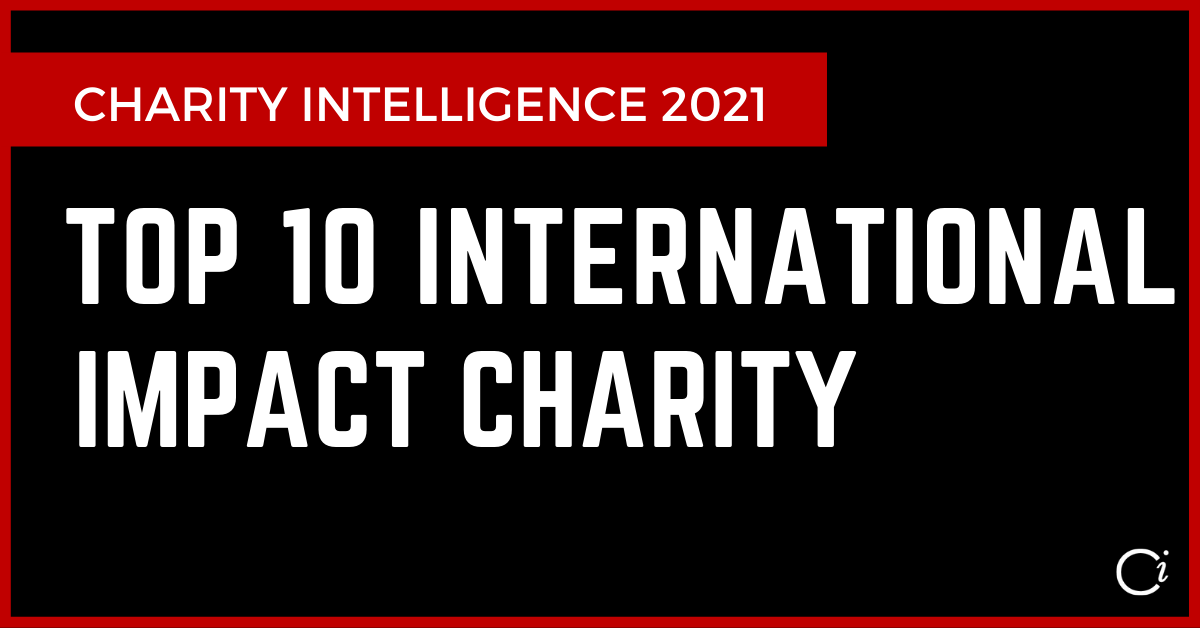
Together with our partners and supporters, over our 65-year history, we have helped more than 10 million children improve their literacy skills and gain access to a better quality of education in order to improve their lives and the lives of their families.
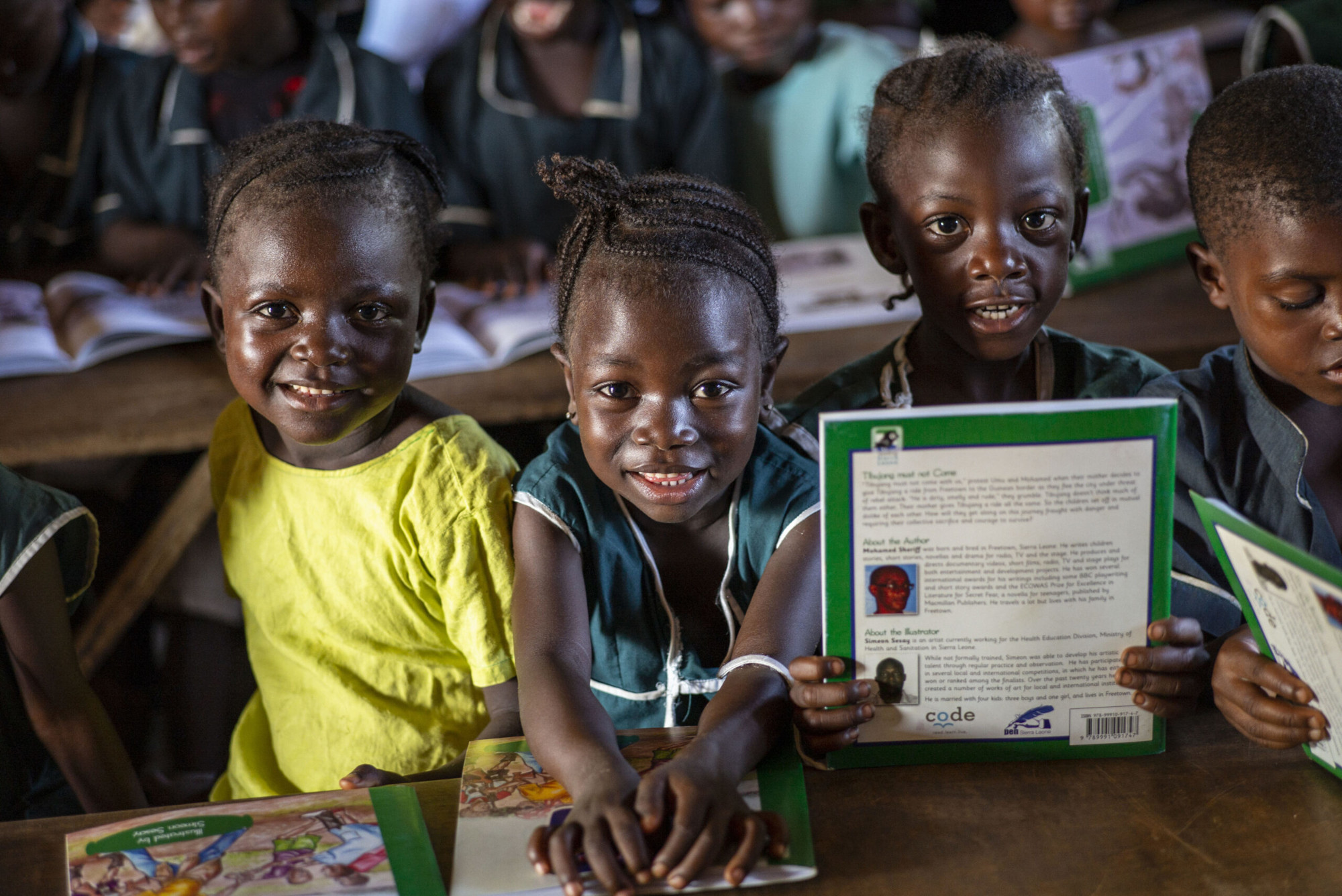

CODE envisions a world where every young person can pursue their education and realize their full potential as a literate, empowered, self-reliant citizen.

CODE’s mission is to enable student learning by increasing their access to qualified educators and locally-relevant, high quality learning materials.

CODE’s work is guided by five core values: human rights, accountability, transparency, fairness, and sustainability.

– Nancy, Grade 3 student, Prestea Huni Valley District, Ghana
Nearly 9 out of 10 children in low-income countries cannot read a simple text with comprehension by the age of 10.
(Source: The State of Global Learning Poverty: 2022 Update, World Bank)
17 million qualified teachers are needed in sub-Saharan Africa alone, to meet the UN’s Sustainable Development Goal of universal access to primary and secondary school.
(Source: Fact Sheet, UNESCO Institute for Statistics)
Only 29% of low-income countries achieve gender parity in primary enrollment and only 16% in lower secondary.
(Source: Global Education Monitoring Report Render Review, UNESCO)

– Theresa, former GALI girl now in Grade 11, Liberia
Supported
children through its literacy programs
(Compared to 506,157 last year)
Provided
teachers with professional development opportunities
(Compared to 10,285 last year)
Distributed
copies of books
(Compared to 550,960 last year)
Partnered with
schools
(Compared to 2,130 last year)
Received support from
caring Canadians
(Compared to 3,515 last year)
Spent
on program development and delivery
(Compared to 88% last year)
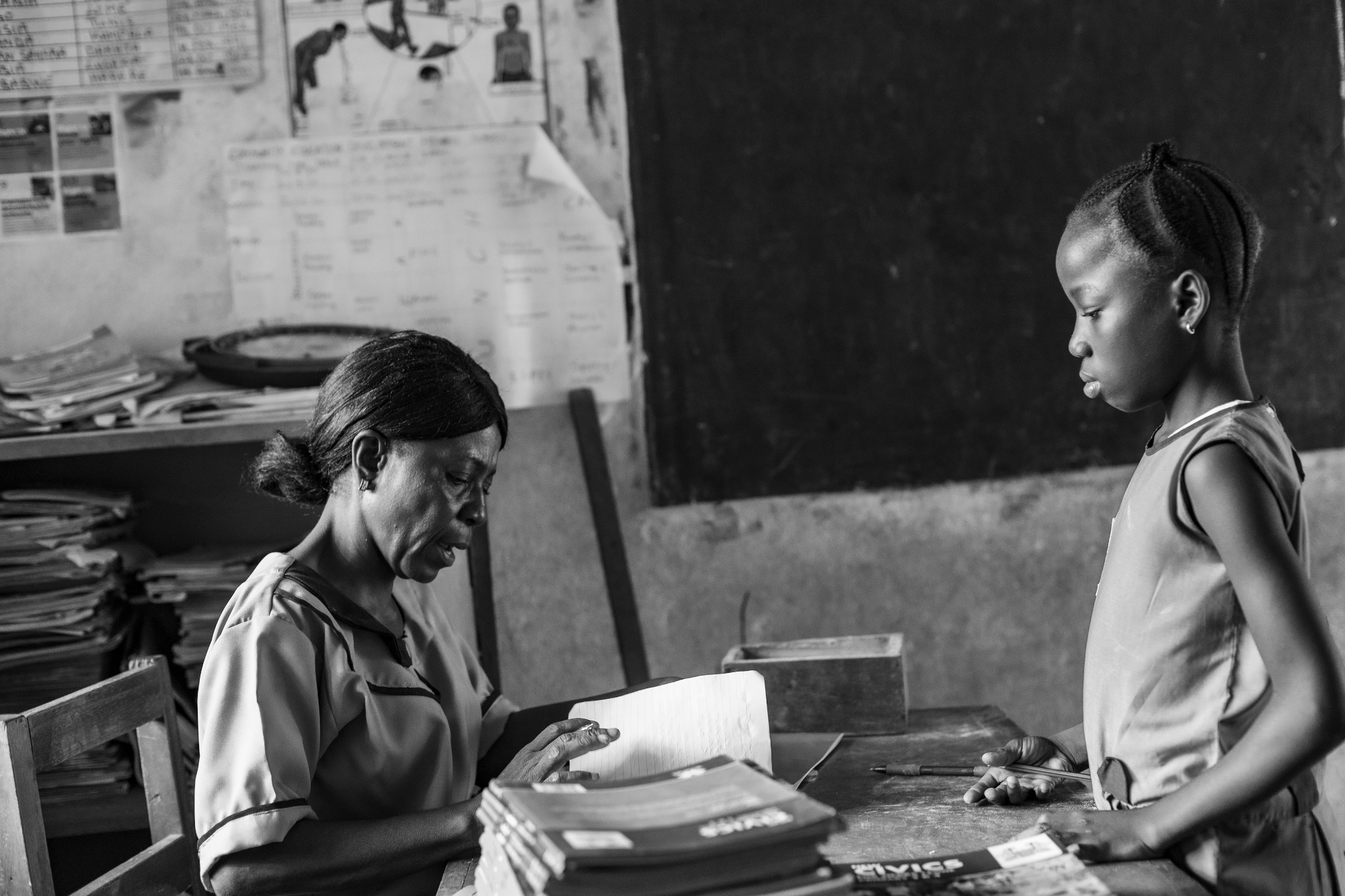
Number of girls in 260 TGEP schools who wrote the primary leaving exam.
TGEP girls saw both a greater increase in those sitting for the exam than the national increase (37% vs 22%, respectively) and a greater increase in pass rate (10% vs. 7%) over this period.
87% of female teachers in the TGEP project substantially improved their classroom teaching practice. This is up from 12% at the start of the project.
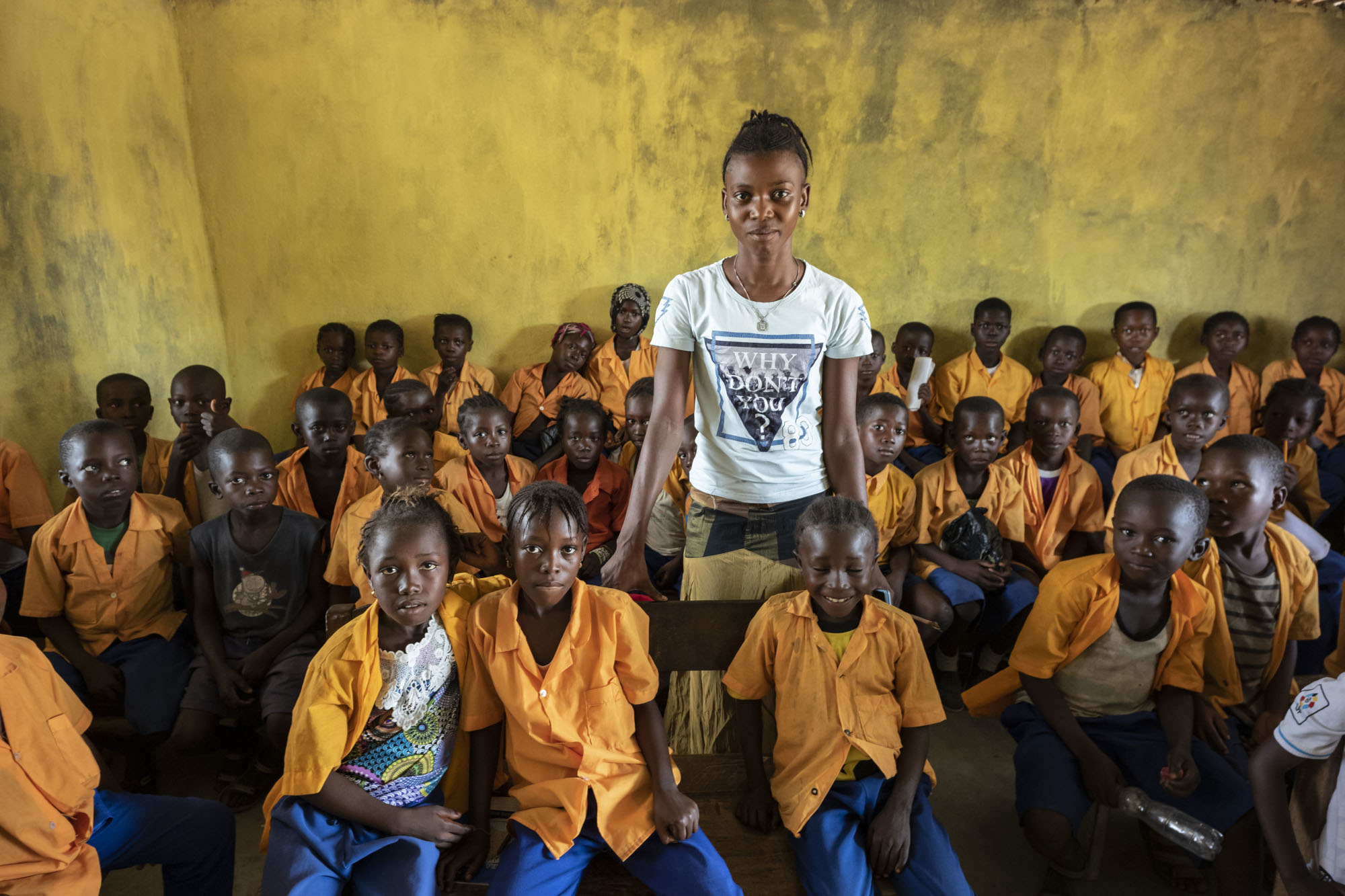
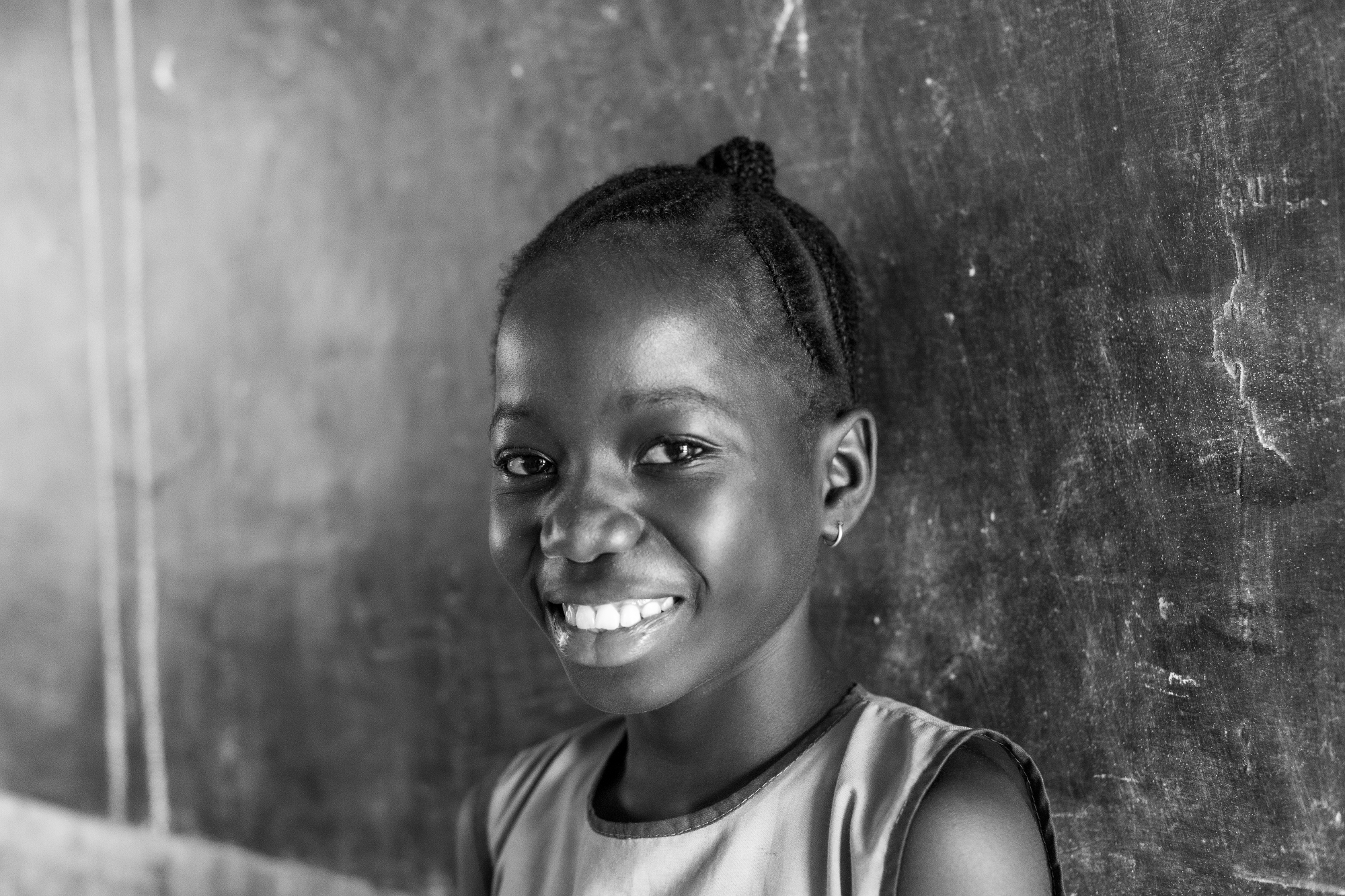
In the TST-SL project teacher assessments showed a 94% improvement in post-test scores compared to pre-tests completed eight months earlier.
Grade 3 students in TST-SL schools demonstrated notable improvement in their composite literacy scores (73%) compared to Grade 3 students in comparison schools (58%).
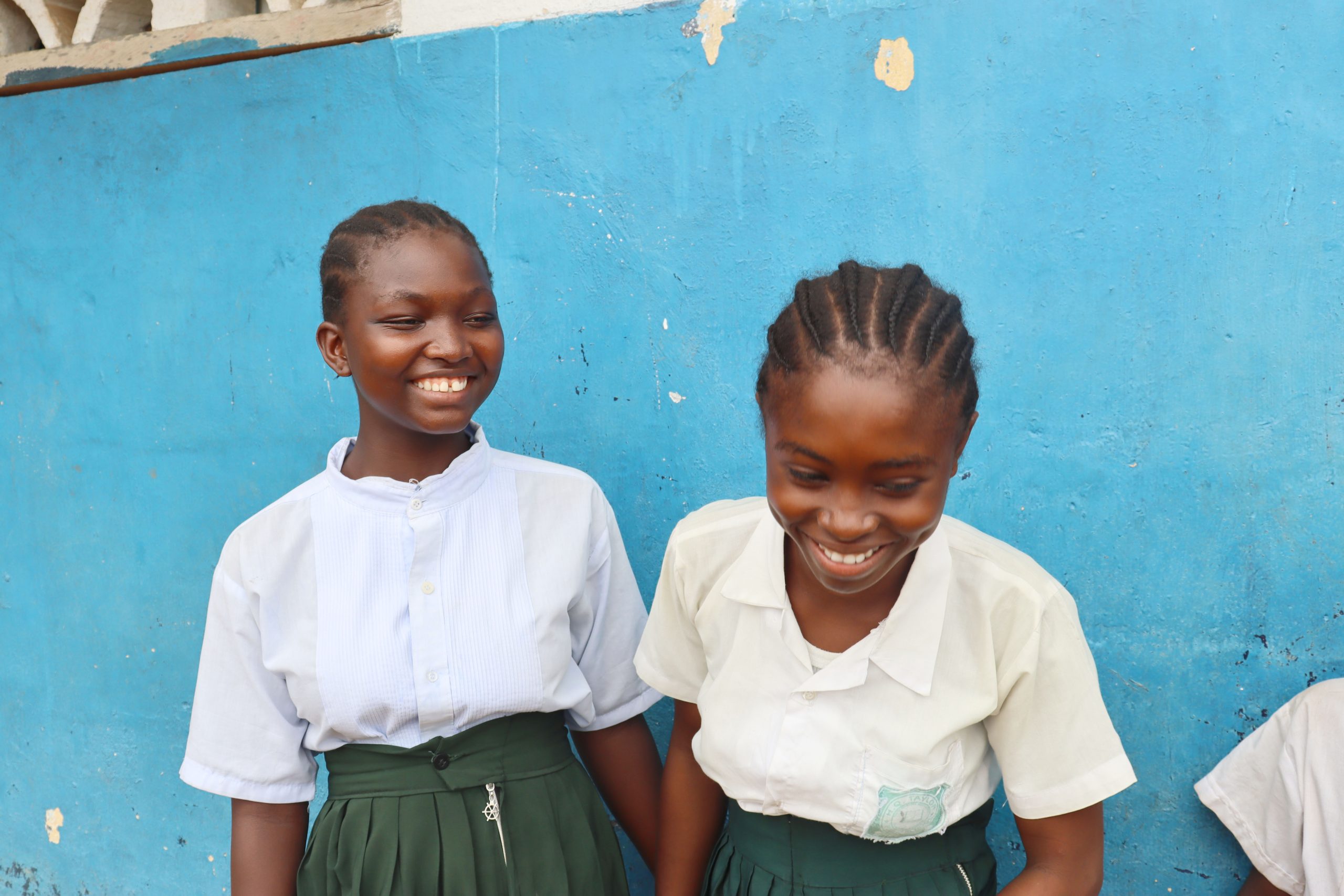
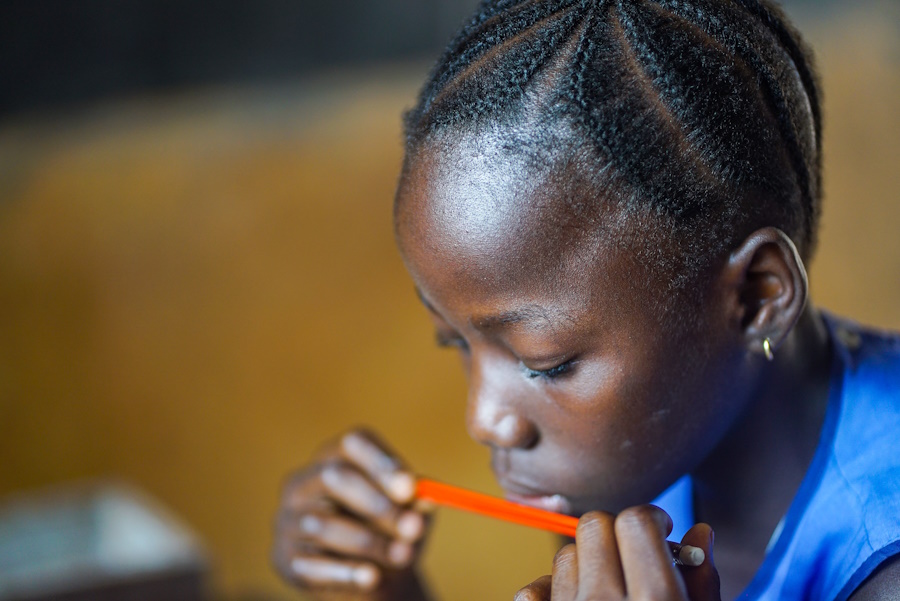
Percentage of girls in the GALI program promoted to high grades in a single year.
GALI double-promotion is based on girls achieving a minimum score of 80% on a ministry-approved test at mid-year.
83% of teachers in training note their TLFC practicum experience has improved their teaching capacity and confidence.
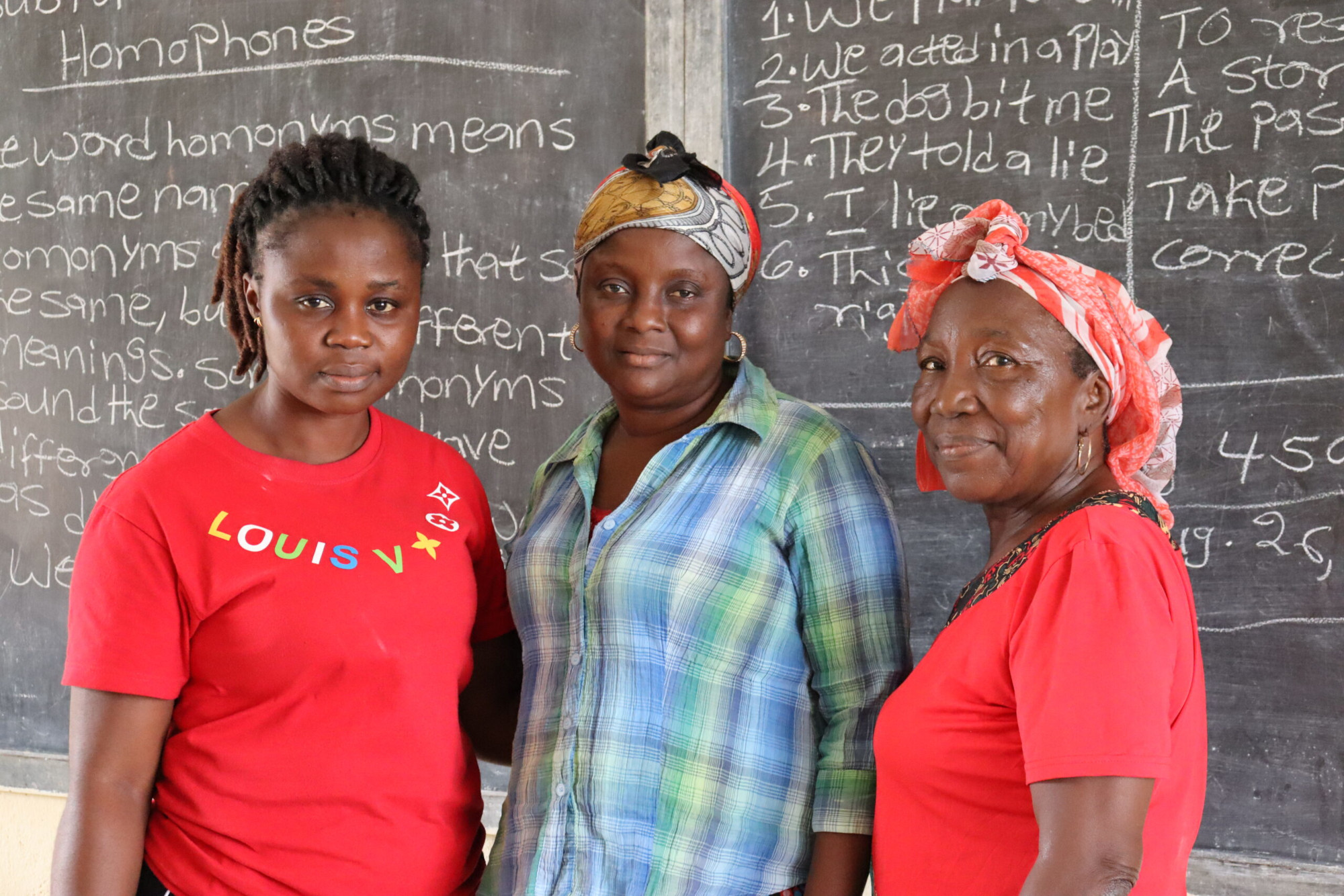
STORIES OF CHANGE
At 13 years old, Patience is the youngest of nine children. Both her parents are farmers in Tarkwa, in the Western Region of Ghana. She likes school but before CODE’s Reading Ghana project started last year, her school didn’t have any books for reading.
Thanks to the project, Patience's school now boasts a diverse collection of books covering various subjects and grade levels, including both fiction and non-fiction. At the school’s newly established Reading Club, Patience immerses herself in these books, expanding her vocabulary and forging new friendships. Strong reading skills are crucial for her aspirations of becoming a nurse, and this newfound access to books is helping her build the foundation she needs to achieve her dream.
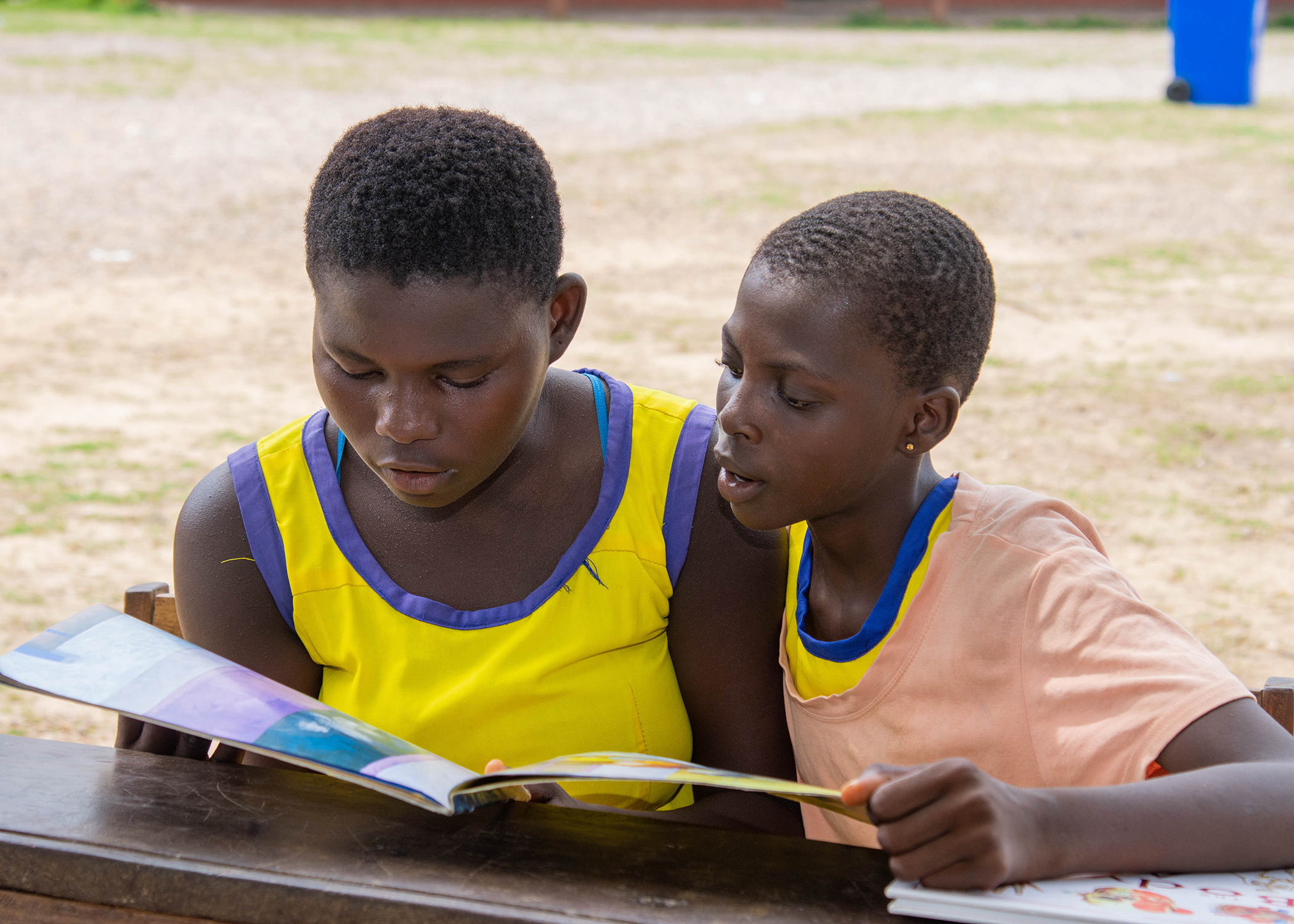
STORIES OF CHANGE
As a young mother in Malawi, no one expected 17-year-old Zione to return to school after giving birth to baby Francis at age 14. In fact, until recently, returning to school or attending while pregnant was forbidden in Malawi.
Zione was thrown an academic lifeline that not many other girls like her get: a compassionate, nurturing, and supportive Mothers’ Group at her school. For Zione, the Mothers’ Group (supported by iHeard) was instrumental in her return to school. When no one else considered this an option, the group – led by Delina and Linda – was there to champion her rights. Over the past two years, they have offered this same support to 15 teen mothers at their school!
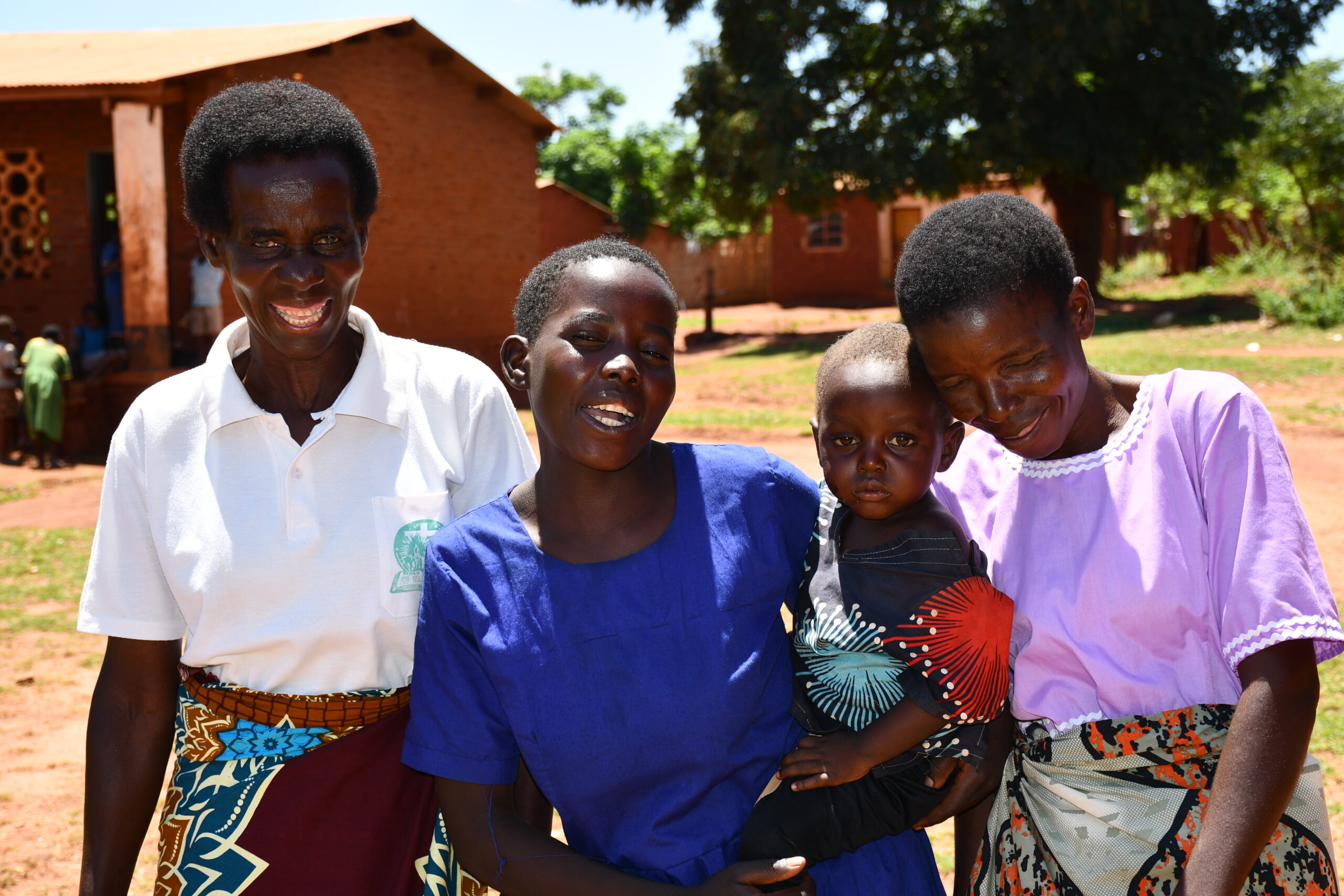
STORIES OF CHANGE
Theresa lives with her parents and grandmother in the village of Kakata, Margibi County, Liberia. She began her schooling at the age of 10, and by the time she was in Grade 3, at 13 years old, she found herself among much younger classmates, struggling with basic reading and writing skills.
In 2018, Theresa joined the Girls’ Accelerated Learning Initiative (GALI), which transformed her educational journey. Now, at 19, she is set to graduate next year and attributes her success to GALI. Theresa shares, “GALI taught me how to read and write, and provided guidance on taking care of myself. Thanks to GALI, I stayed in school, avoided early pregnancy, and stayed focused on my studies.”
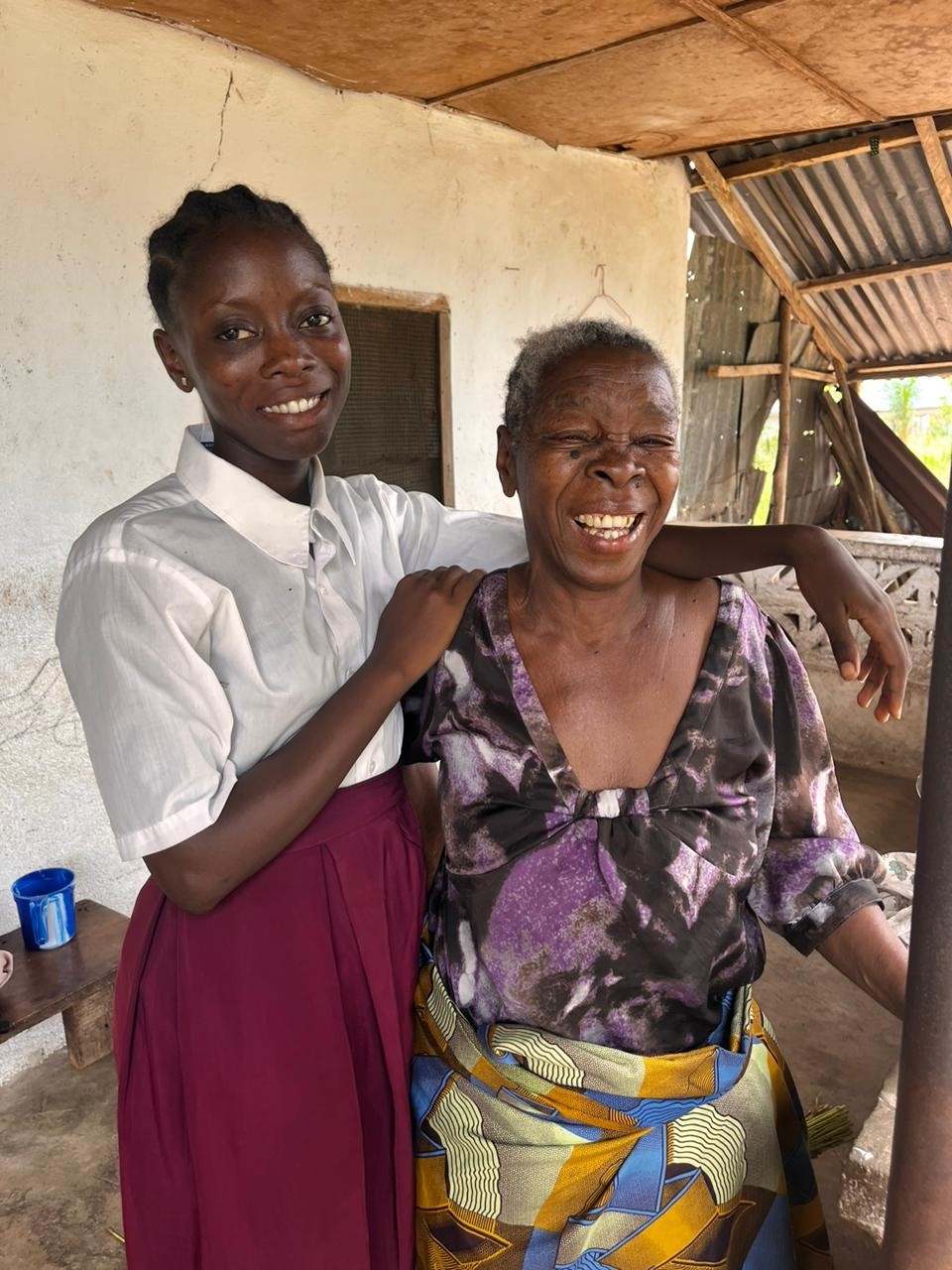
STORIES OF CHANGE
Sirilo's journey from aspiring teacher to an accomplished educator is truly inspiring. An enthusiastic participant in CODE-supported professional development activies, Sirilo has used and adapted many of the literacy promotion methods encouraged by the BETTER program. His commitment to helping young people acquire foundational literacy skills extends beyond the classroom. During his holidays he organizes informal reading and writing classes for local children.
Sirilo’s dedication and innovation have garnered such praise at his previous school that the school council, along with the local community, are eargerly requesting his return. The profound impact of Sirilo’s work exemplifies his deep commitment to education and community development.
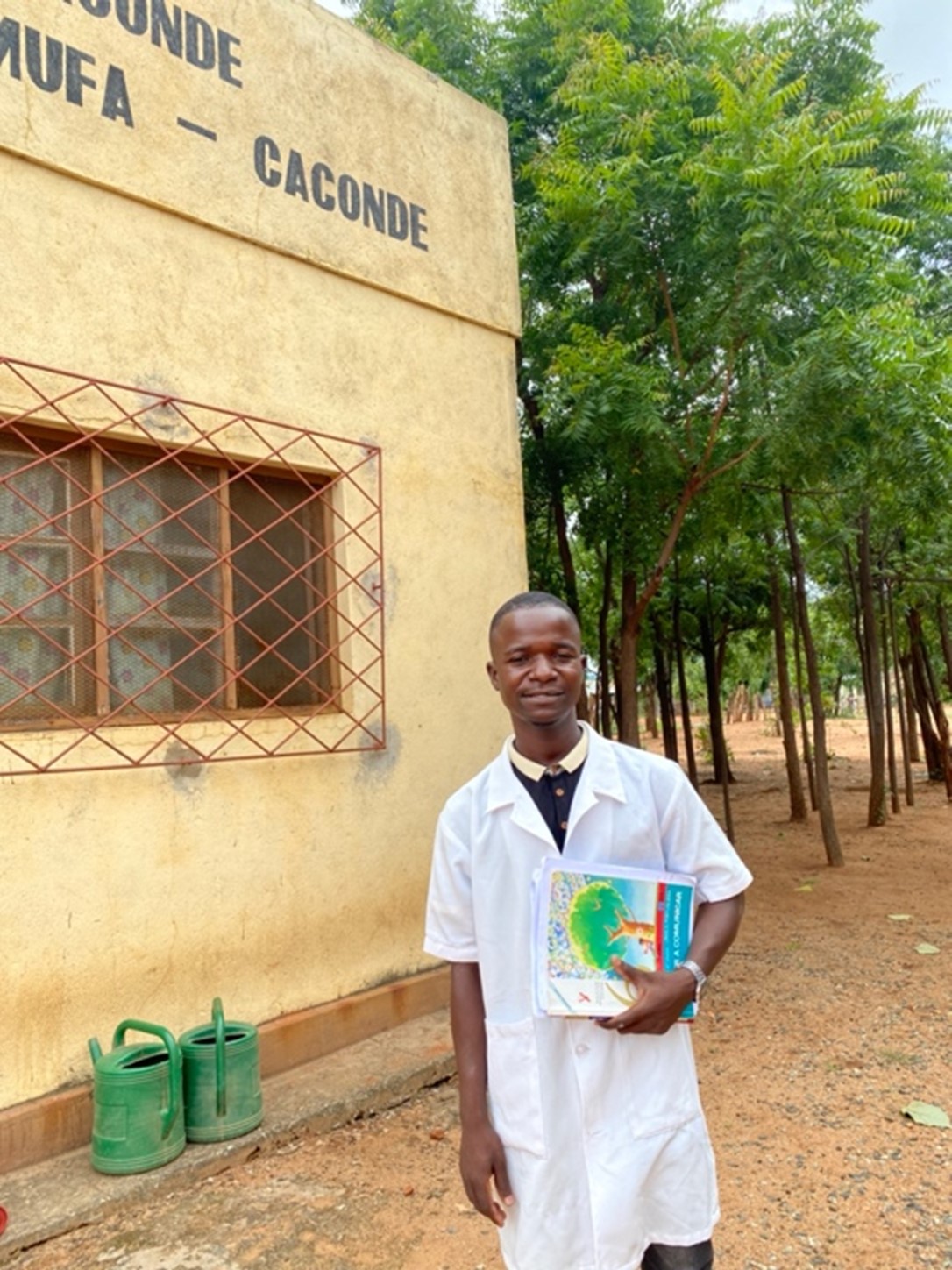

– Nassoro, Head Teacher, Kilombero District, Tanzania
CODE works to ensure that every child can learn from confident, well-trained teachers who have access to the high-quality learning materials needed to help children reach their potential. CODE works to create sustainable change by working in partnership with community-based organizations that provide a local voice and local expertise, and by facilitating engagement of numerous stakeholders such as ministries of education and parent teacher associations. CODE collaborates with partners to develop locally appropriate solutions and then works with governments and institutional funders to scale-up change to a national level.
We are proud to collaborate with these exceptional community partners:

– Esther, 14 years old, student, Sierra Leone
CODE’s second phase of collaboration with UNICEF on the ambitious Training and Supporting Teachers in Sierra Leone (TST-SL) project concluded in the spring of 2023. Funded by the Global Partnership for Education, the program worked to improve foundational literacy and learning of over 220,000 students in Sierra Leone. Never before had CODE undertaken such a large-scale teacher development program.
In July 2023, CODE and our implementing partner, the WE-CARE Foundation in Liberia, launched our biggest GALI program yet, doubling our reach from 20 to 40 schools for the next three years!
BETTER in Mozambique is CODE’s longest-running program, which this past year helped improve the literacy and learning of 122,005 boys and girls. Funded by the Government of Canada through Global Affairs Canada and delivered jointly with Associação Progresso and the Ministry of Education and Human Development, BETTER is now in its final year.
In Sierra Leone, many girls face significant obstacles to acquiring basic literacy skills, largely due to societal attitudes that undervalue education for girls, confining them to traditional roles as wives and mothers. Over the past four years, the Transforming Girls’ Education Project (TGEP) has been instrumental in addressing these challenges at 260 schools.
Funded entirely by CODE’s generous supporters and the Gold Fields Ghana Foundation, the Reading Ghana – Western Region program is dedicated to helping 12,500 students in Grades 1-6 become more confident and capable readers. Spanning 37 primary schools in Tarkwa and Prestea-Huni Valley, the program supports some of the most vulnerable children in Ghana’s mining communities and offers a better future to those often forced into illegal mining to support their families.
Supporting ten teachers’ colleges in Liberia and Sierra Leone, TLFC gives CODE and our partners the opportunity to positively influence the learning and practices of the next generation of teachers as they prepare for their future in the classroom.
Through strategic partnerships in the health, communication, and education sectors, iHeard is committed to advancing the sexual and reproductive health and rights (SRHR) of adolescent girls and young women in Malawi. CODE is leveraging its expertise in teacher training, book development, and community engagement to empower youth with knowledge and agency, thereby fostering increased demand for SRHR and family planning services.
Building on CODE’s previous work with the former Children’s Book Project (now the Children’s Book Organization), CODE embarked on a two-year project, funded by CODE’s Summit for Literacy, to cultivate sustainable reading habits and ensure lasting educational success for students in participating schools.
Over the past five years, CODE’s Context Matters research program has partnered with 23 teams of African researchers to conduct research responsive to local contexts and communities. Beyond the important findings surfaced by this localized research, Context Matters has also facilitated productive collaborations; disseminated southern knowledge regionally and globally; and afforded academics the flexibility necessary to explore new research areas.
CODE’s second phase of collaboration with UNICEF on the ambitious Training and Supporting Teachers in Sierra Leone (TST-SL) project concluded in the spring of 2023. Funded by the Global Partnership for Education, the program worked to improve foundational literacy and learning of over 220,000 students in Sierra Leone. Never before had CODE undertaken such a large-scale teacher development program.
Initially slated for one year, a second year was added to further develop local ownership, while remaining focused on additional in-service teacher training and provision of learning and teaching materials.
After two years, the program has engaged 6,873 teachers in 1,309 schools. To support these teachers and classrooms, TST-SL also distributed 260,000 early grade reading books in the first year and an additional 310,197 in the second year.
A hallmark of the program was the creation of over 800 Teacher Learning Circles (TLCs), which fostered professional development through collaborative learning, reflective practice, and peer support. The TLCs were then grouped into Community of Practice (CoP) clusters to facilitate connections to innovative learning from outside their immediate area.
After this relatively short engagement with teachers, assessments revealed that 84% of the classrooms visited were found to be making positive progress in adopting key teaching skills introduced and promoted by the program.
The work carried out under TST-SL enabled CODE to secure research funding from the International Development Research Center to further investigate the sustainability and scalability of our CoP model. This research will be undertaken in collaboration with TALLE and key education stakeholders in the country. Moreover, insights gained from this project are already informing other CODE initiatives and are expected to contribute to education policy and sector knowledge.
It is often presumed that any improvement in teacher effectiveness will come only through learning materials and approaches that originate elsewhere. And yet there is much for teachers to learn from their peers who understand and face many of the same challenges. CODE wants to ensure that grassroots knowledge is incorporated in broader discussions on best practices in teacher development.
In July 2023, CODE and our implementing partner, the WE-CARE Foundation in Liberia, launched our biggest GALI program yet, doubling our reach from 20 to 40 schools for the next three years!
In September 2023, 840 enthusiastic and determined girls embarked on their GALI journeys in schools throughout the counties of Bomi, Grand Bassa, Margibi and Montserrado. Due to a late start in their schooling, participating girls were all considerably too old for their grade, and at high risk of giving up and dropping out.
Throughout the year, the girls were championed by their specially trained teachers, mostly women. Academic support was provided in daily after-school tutoring sessions and equally important, GALI also created a safe space for life skills lessons on topics like gender equality and avoiding pregnancy. This year a new life skills lesson on Action for Climate Change has also been added to the life skills curriculum.
The girls’ hard work paid off, with 81% promoted two grades in a single academic year, 18% promoted one grade and less than 1% dropping out of school. This is remarkable considering the Ministry of Education states that 54% of enrolled students will drop out before they complete Grade 6.
New to GALI this year, we piloted an accelerated kindergarten for both over-age boys and girls, aiming to stem the tide of over-age students into Grade 1 classrooms. With good results in this first year, CODE and WE-CARE continue to closely monitor implementation and adapt programming as needed to maximize the number of students gaining the foundational skills required to quickly advance to Grade 1.
GALI is working for the first time at the kindergarten-level, recognizing its significance for better performance in later grades. It quickly became evident, however, that kindergarten teachers are the least qualified and face the largest classes. In the coming year, program coaches will increase their support to kindergarten teachers to ensure that over-age students gain the foundational skills they need to help them advance more quickly to Grade 1.
BETTER in Mozambique is CODE’s longest-running program, which this past year helped improve the literacy and learning of 122,005 boys and girls. Funded by the Government of Canada through Global Affairs Canada and delivered jointly with Associação Progresso and the Ministry of Education and Human Development, BETTER is now in its final year. Since its inception, CODE and its partners have established deep relationships with four teacher training institutes in some of the most remote districts of Mozambique – working alongside staff to elevate the quality of teacher preparation.
Our efforts to strengthen teacher capacity in the use of student-centered methods; promotion of gender equality in classrooms; and improved literacy instructional practices have been well received. Efforts are now underway for integration of these practices into 19 additional teachers’ colleges beyond the four we have worked with directly.
Additionally, in response to a request from the Ministry of Education and Human Development, we significantly expanded the distribution of five new teacher training textbooks, delivering 40,000 additional copies to 34 locations, meaning the textbooks are now in every teacher training institute in the country. This is undoubtedly a testament to both their high quality and the high demand for educational resources to prepare teachers for effective service.
In February 2024, the project hosted the Honourable Ahmed Hussen, Canada’s Minister of International Development, providing a significant platform to showcase local collaboration and impact. The minister’s visit highlighted the project’s successful implementation and reinforced the importance of ongoing support from international partners.
With BETTER expected to conclude in December 2024, a multitude of evaluative activities are presently underway to consolidate our learnings and inform future undertakings.
Striking an optimal balance of generic and regionally tailored teacher training content is important to achieving program efficiency and effectiveness. By conducting more detailed needs assessment at each teachers’ college, we can better understand and address regional differences, ensuring that training materials are both relevant and effective, while remaining mindful of economies of scale.
In Sierra Leone, many girls face significant obstacles to acquiring basic literacy skills, largely due to societal attitudes that undervalue education for girls, confining them to traditional roles as wives and mothers. Over the past four years, the Transforming Girls’ Education Project (TGEP) has been instrumental in addressing these challenges at 260 schools.
The project, which concluded in December 2023, focused on four of Sierra Leone's most disadvantaged districts: Bonthe, Karene, Port Loko, and Western Rural. In close collaboration with project schools, CODE worked to reduce barriers to education for vulnerable preteen and teen girls.
Central to the project was enhancing teacher effectiveness and support for girls. TGEP provided training to 1,275 in-service teachers, emphasizing active learning, improved classroom practices, lesson planning, and gender-responsive pedagogy. Throughout the project, 330,000 locally authored and illustrated books on girls’ empowerment themes were distributed. Additionally, 260 Boys and Girls Clubs were established to offer extra tutoring and life-skills development, and 24 Remote Area Community Hotspots for Education and Learning were built.
These efforts have led to some good outcomes. Most notably, between 2019 to 2023, the number of Grade 6 girls sitting for their national primary school exams increased by 37%, compared to a national average increase of 22%. Furthermore, the pass and transition rates to secondary school were higher than the national average, which includes urban areas traditionally scoring better than rural regions like those supported by TGEP.
As the project wound to a close, CODE reflected on the challenges and lessons learned. It became evident that exceptional external pressures, particularly the COVID-19 pandemic, along with various organizational changes at CODE, led to the evolution of the program well beyond its original scope. The extended timeframe allowed for the implementation of more sustainable and impactful interventions, ultimately enhancing the project's success and effectiveness.
The final year of TGEP reinforced the effectiveness of the Communities of Practice (COP) model as a means of providing continuous learning, facilitating connections between peers, and fostering innovation. However, work must be done to enhance sustainability of the model and reduce reliance on external funding. Over the coming year, CODE will seek to better understand and develop a scalable and sustainable model for CoPs through the Teaching Matters - Scaling Teacher-Driven Communities of Practice and Learning research initiative funded by the International Development Research Centre (IDRC).
Funded entirely by CODE’s generous supporters and the Gold Fields Ghana Foundation, the Reading Ghana – Western Region program is dedicated to helping 12,500 students in Grades 1-6 become more confident and capable readers. Spanning 37 primary schools in Tarkwa and Prestea-Huni Valley, the program supports some of the most vulnerable children in Ghana’s mining communities and offers a better future to those often forced into illegal mining to support their families.
The program emphasizes developing teachers' skills; ensuring availability of supplementary reading materials; and fostering a culture of reading for enjoyment. It also aims to raise awareness amongst parents and the community about the importance of education and creating a supportive environment for student learning.
This past year – marking the first of CODE’s planned three-year engagement with partner schools – focused on establishing a solid foundation on which to build lasting results.
Together with our local partner, the Olinga Foundation for Human Development, we welcomed 313 educators into a program of continuous professional development, including workshops and in-class mentorship. Through participatory methods, schools developed Reading Action Plans to build high-performing reading environments and established 41 Reading Clubs.
Efforts to engage parents and the broader community were exceptionally well received – Reading Competitions and 48 school-based Reading Festivals let students showcase their growing literary interests and reading abilities.
A resounding highlight was the distribution of over 37,545 inspiring and culturally relevant books, far exceeding CODE’s target of 22,000 thanks to favorable currency exchange fluctuations and volume pricing. Together with newly created teaching aids, classrooms were transformed into more stimulating, text-rich environments featuring reading corners, book displays and small lending libraries.
Continuous mentorship serves as a cornerstone of empowering and motivating teachers to continually refine their teaching practice, ultimately leading to enhanced student learning outcomes and academic achievement. Mentorship was provided through numerous channels, including Whatsapp.
Supporting ten teachers’ colleges in Liberia and Sierra Leone, TLFC gives CODE and our partners the opportunity to positively influence the learning and practices of the next generation of teachers as they prepare for their future in the classroom.
In partnership with the WE-CARE Foundation in Liberia and The Association of Language and Literacy Educators in Sierra Leone, TLFC engages with teacher education in three areas: 1) improving teaching methods with a focus on being gender responsive and student-centered, 2) supporting effective practica for student teachers, and 3) influencing education decision-makers to embed effective teacher preparation practices into policy.
Being implemented in two neighboring countries, TLFC facilitates exchange visits to promote knowledge-sharing, best practice discussions and exploration of innovative approaches to common challenges. This past year, 26 key personnel from partners, ministries of education, teachers’ colleges and other education institutions participated in stimulating exchange visits.
Responding to the tremendous need for culturally relevant books, CODE and partners worked with 34 local authors and 11 local illustrators to create twelve new reading anthologies, each comprising over 50 pages of curriculum-aligned text and engaging illustration. This approach not only supports local talent but promises to offer a rich tapestry of stories, poems and non-fiction pieces designed to captivate young minds and spark a love of reading.
TLFC, which is funded primarily by the Government of Canada through Global Affairs Canada, is supporting research in sub-Saharan Africa to better understand how foundational learning is impacted by displacement and conflict. Ten research teams from seven countries have been funded to explore subjects such as early childhood education, trauma-informed teaching, education technologies, and disaster risk reduction for the education sector.
A key element of TLFC is the student teacher practicum whereby they are placed in a primary school to learn from an experienced teacher. In both countries the practica were not providing the student teachers with an effective and beneficial experience. Investing in these critical opportunities to translate knowledge into practice can have a high impact on the student teacher’s journey to become a skilled teacher.
Through strategic partnerships in the health, communication, and education sectors, iHeard is committed to advancing the sexual and reproductive health and rights (SRHR) of adolescent girls and young women in Malawi. CODE is leveraging its expertise in teacher training, book development, and community engagement to empower youth with knowledge and agency, thereby fostering increased demand for SRHR and family planning services.
The iHeard project’s motto, “Spot On! Kalikonse Tikadziwe” — meaning “We want to be informed!” in Chichewa — reflects our dedication to empowering young people with the information they need to make healthy decisions. To achieve this, CODE and Farm Radio International are leading extensive radio communication campaigns, training hundreds of teachers, setting up school clubs, and mobilizing community-based youth networks.
A significant milestone achieved this past year was the publication of puberty books, now in use at 43 partner schools. In collaboration with the Forum of Women Educationalists in Malawi (FAWEMA), CODE also provided comprehensive training to 500 teachers and patrons of Mothers’ Group on life skills curriculum.
According to data from the program’s primary healthcare partner, Banja La Mtsogolo (BLM), there has been a substantial increase in the demand for sexual and reproductive health services and family planning. BLM’s clinics reported a rise in family planning visits from 7,400 annually at the program’s inception to 13,000 in the second year. Additionally, BLM’s call center has provided support to 24,450 youth regarding SRHR services.
Anecdotal evidence indicates that demand is often exceeding supply at some health service provider clinics, particularly government facilities. In response, BLM has initiated mobile clinics in collaboration with community partners, and program stakeholders are actively working with government and other private health service providers to ensure the availability of these essential services.
Building on CODE’s previous work with the former Children’s Book Project (now the Children’s Book Organization), CODE embarked on a two-year project, funded by CODE’s Summit for Literacy, to cultivate sustainable reading habits and ensure lasting educational success for students in participating schools.
Reading Tanzania aims to boost literacy levels among primary students by providing engaging, high-quality reading materials and comprehensive teacher training. Fifteen under-resourced primary schools in Ifakara District in south-central Tanzania are the focus of CODE’s and CBO’s joint efforts.
To get good books into the hands of students in the first year, CBO procured and distributed 7,500 high-quality children's books to partner schools, significantly improving the schools' previously limited access to supplementary reading materials and promoting a culture of reading amongst students.
The groundwork was also laid this year for the creation of new reading books utilizing the talents of 23 writers and 16 illustrators – all local artists with a deep understanding of the cultural context and fluent in Swahili. The training workshops conducted not only refined their existing skills but also introduced new techniques, underscoring the importance of continuous professional development.
The project provided intensive training for 45 teachers in partner schools to enhance their literacy instruction skills. In addition to the workshop, these teachers received ongoing coaching and mentoring to reinforce their skill development and the application of new strategies. With the new books in hand and more on the way, these teachers are now better equipped to foster literate environments in their classrooms and effectively support student learning.
Adaptive programming that responds to unforeseen challenges is critical to advancing program goals. In Tanzania, the absence of clear guidelines from the Tanzania Institute of Education (TIE), the governing body for approving books for use in schools, presented challenges. Although not part of our original plan, CBO is now collaborating with TIE to create comprehensive book development guidelines, which will ensure clear standards and expedite decision-making well into the future.
Over the past five years, CODE’s Context Matters research program has partnered with 23 teams of African researchers to conduct research responsive to local contexts and communities. Beyond the important findings surfaced by this localized research, Context Matters has also facilitated productive collaborations; disseminated southern knowledge regionally and globally; and afforded academics the flexibility necessary to explore new research areas.
Research partners produced high-quality papers, with several being published or presented at global conferences. For example, this past year, Dr. Dawit Getahun’s research in Ethiopia was featured in the African Journal of Research in Mathematics, Science and Technology Education. Additionally, CODE leveraged its convening power to organize the Context Matters Symposium at the 2023 Pan-African Literacy for All Conference in Nairobi, facilitating the participation of six research teams who attended and presented their findings at the event.
The fifth and final cohort of Context Matters grant recipients was announced in 2022. Research projects are currently underway in Kenya, Nigeria, Malawi and Ethiopia and due to be completed in 2025. They focus on literacy and technology, ranging from how to leverage technology with teenage mothers in slums to the use of digital portfolios and mobile ICT to enhance teacher training.
Context Matters was CODE’s first foray into education research – an area where we saw a significant gap and opportunity to inform education policy, practice and programs. Beyond generating thought-provoking papers, Context Matters has provided rich opportunities for self-reflection on our role and how best to structure research projects for maximum impact while respecting the autonomy of researchers.
An evaluation commissioned in 2022 offered crucial insights and recommendations that have, over the past year, guided the development of a more focused, and locally driven model for the research planned under the Teaching and Learning in Fragile Contexts program.
We’ve learned not to underestimate the considerable time, expertise and costs associated with production of high-quality research. Grant size has therefore doubled (from $10k to $20k) for the next tranche of research included in the Global Affairs Canada-funded Teaching and Learning in Fragile Contexts program.
Thank you to our outstanding Boards of Directors whose professionalism and generosity of time and talent are cental to CODE’s achievements and the advancement of its mission.
Board of Directors
(as of March 31, 2024)
Chair, Bruce Montador
Senior Public Servant, Ret., Chair, Africa Study Group, Canadian International Council, National Capital Branch
Vice Chair, Nathalie O’Neil
Global Affairs Canada, Ret.
Treasurer, Pauline Port
VP Corporate Services and CFO, Canadian Blood Services, Ret.
Cathy Carlin
Investment Executive, Ret. (Chair, CODE Foundation)
Rachel Welch O’Connor
Practice Lead, Leadership and Performance · WATSON Advisors Inc.
Dr. James V. Hoffman
Language and Literacy Studies, The University of North Texas
Valerie Hussey
Former CEO and Publisher, Kids Can Press
Jeff Kehoe
Director, Enforcement at Ontario Securities Commission
Asheer Sharman
Physician specializing in Intensive Care and Internal Medicine, Trillium Health Partners
Aliou Sow
Publisher and International Education Consultant
Rob Tierney
Dean Emeritus and Professor Emeritus of Language and Literacy Education, UBC
Janice Ciavaglia
CODE CEO/Ex-Officio
Colin McNairn
Honourary Life Counsel
Leadership Team
(as of March 31, 2024)
Janice Ciavaglia
Chief Executive Officer
Lisa Graziadei
Interim Director of Finance and Administration
Andrea Helfer
Director of Fund Development and Marketing
Joan Summers
Chief Operating Officer and Acting Director of Programs

– Ibrahim Kamara, Teaching Service Commission, Sierra Leone
Total revenue increased by 12% as compared to the prior fiscal year. This growth was principally the result of a 40% increase in donations. This growing support is critical to the resilience of CODE’s programming, and we are deeply grateful.
Our annual grant from the CODE Foundation (whose assets originate predominantly from profits of CODE’s past social enterprise) offset expenditures for fundraising and communications, as well as other strategic operational investments. The year-over-year increase in fundraising expenditures is one example of a time-limited investment made by the CODE Foundation in building the charity’s fundraising capacity and resilience.
The rise in general administration expenditures is primarily attributed to temporary investments in upgrading operational systems, expenses related to the potential sale of CODE’s land, and the facilitation of a smooth leadership transition. Additionally, the audited financial statements for this year include two years’ worth of field office expenditures due to logistical reasons. Rising costs for products and services also play a role in the increase. CODE is dedicated to managing general administrative costs effectively and anticipates reducing them to below 10% in the coming year.
CODE is reporting a deficit of $160,400 for fiscal year 2023-24 due to foreign exchange losses, an increase in audit fees, and adjustments for expenses related to the prior fiscal year.
The Finance and Audit Committee of our Board of Directors provides financial oversight of CODE, including budgeting, financial reporting, risk management, monitoring of internal controls and accountability policies. The Committee oversees the audit of our year-end financial statements conducted by Deloitte LLP.

– Patricia, teacher, Junction-Port Loko District, Sierra Leone

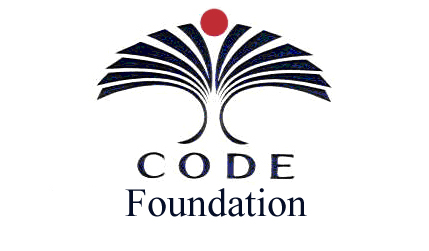

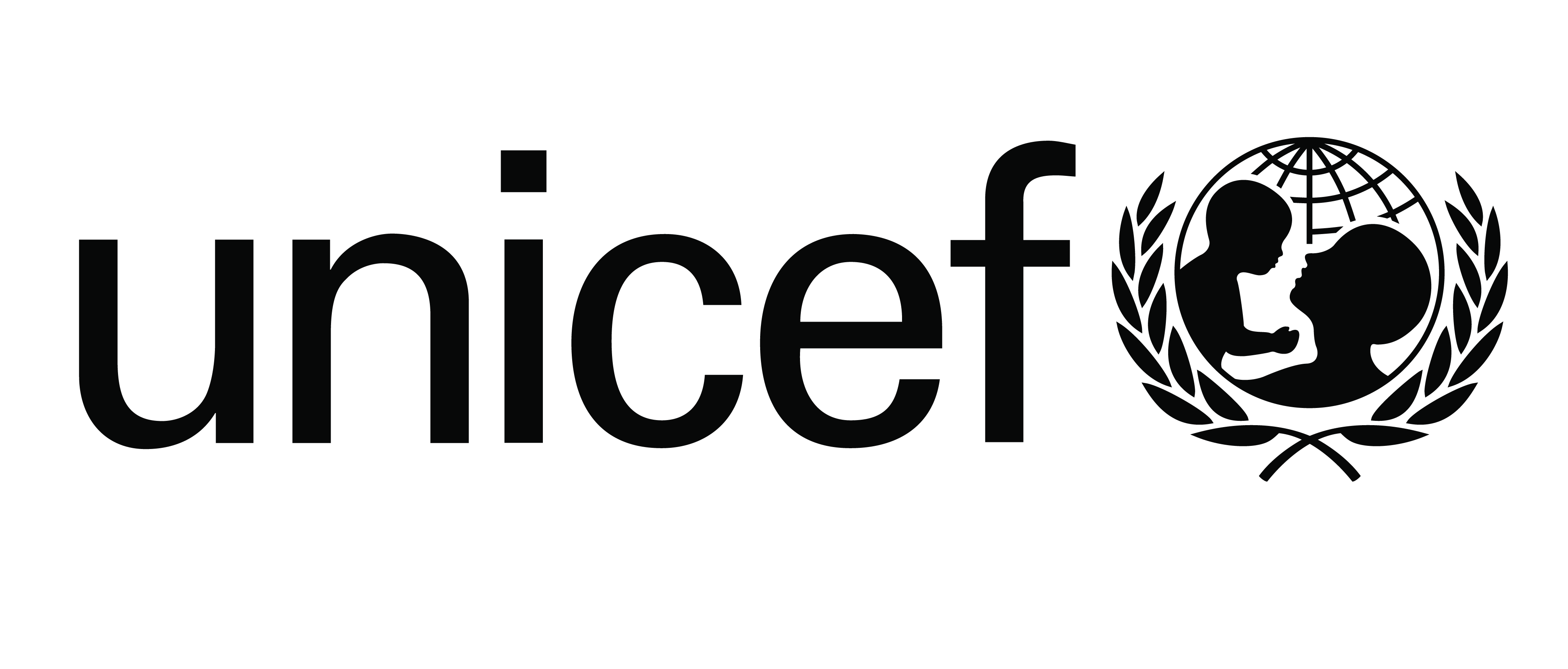
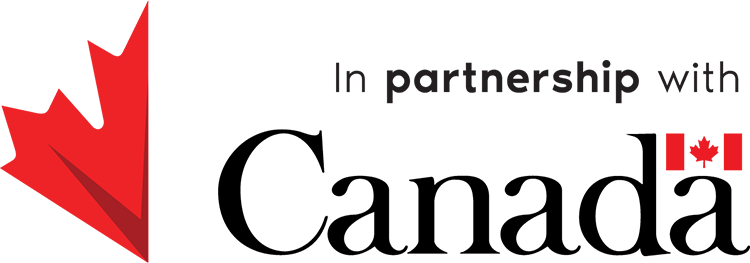
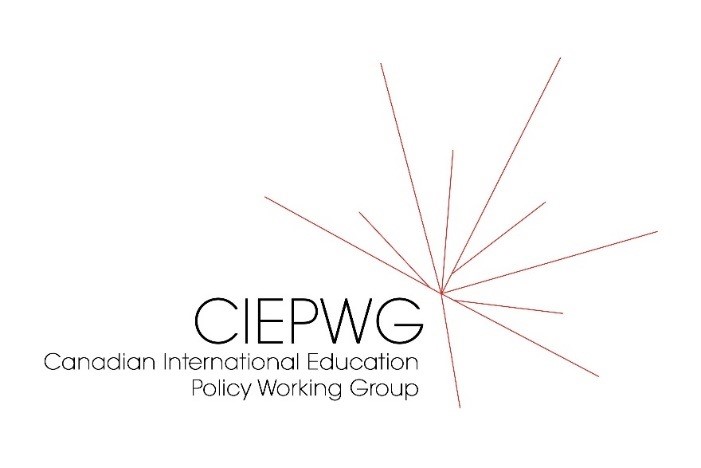
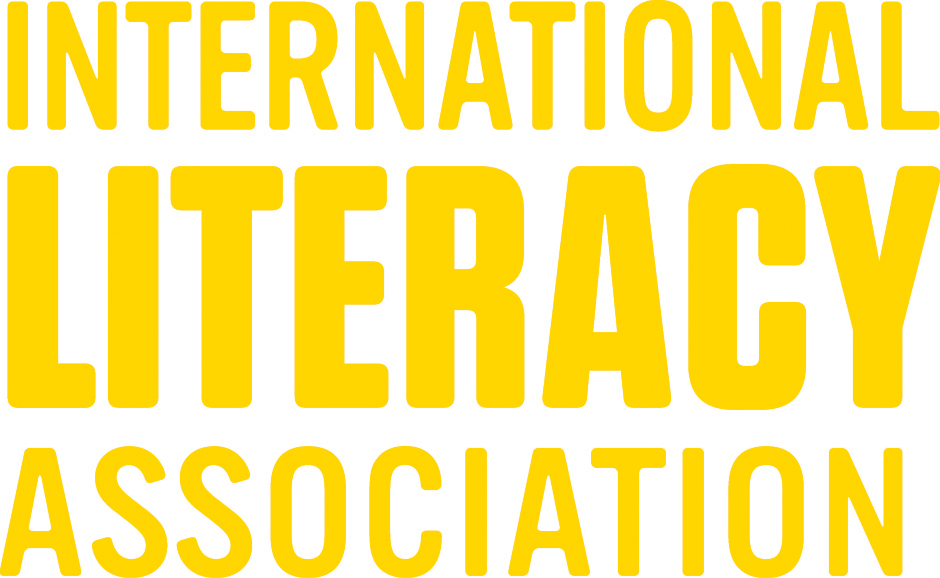
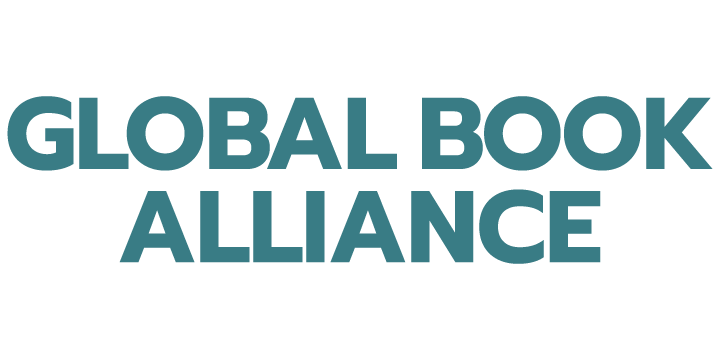


- Finala, school club patron, Lilongwe District, Malawi
Your support means we can help children in sub-Saharan Africa expand their horizons and opportunities in life through the gift of reading. Thank you for supporting our important work and for sharing our belief that literacy can help unleash the potential in any child.
While we are unable to recognize every donor, we wish to give a special thanks to the following:
Individuals
Brian Bencze & Carina Bleuer
Wilfred and Mary Bradnock
Christopher D. Bredt & Jamie Cameron
Heather Cameron & Family
Catherine Carlin
The Casey Family
Janice Ciavaglia
David Cuthiell
Ron and Elizabeth Davies
Gwynneth Evans
Dianne Fahselt
Carol Fedrau-Ens
Jean & Kenneth Finch
William Forward
Catherine Garvey
Jack and Shayla Goldstein
The Halley Family
Andrea Helfer
Mark K. Heule
John and Ms. Jacqueline Hucker
Valerie Hussey
Neil Jacoby
Lloyd Karges
Martin Kuhn
Réal Lavergne
Susan & Peter MacLaren
Colin H.H. McNairn
R. Bruce Montador
George Ian Morrison
Rachel and Ryan O'Connor
Nathalie O'Neil
Dennis Passerini
The Phillips Family
The Radha Family
Baily and Lynne Seshagiri
Asheer Sharman
Rick & Michelle Soenen & family
The Sollbach Family
Michael Strelbisky
Joan Summers
Valerie Tarico
Richard Taylor
Maureen H. Thompson
Brian A. Traquair
Scott and Olga Walter
Eric and Farah Webber
Steve Winder
Pamela J. T. Winsor PhD.
Heather Wrigley
Many more who wish to remain anonymous
Estates
Estate of Elizabeth Laura Grace Butler
Estate of Jean De Cecco
Estate of Winnifred M. Field
Estate of Terence Heaps
Estate of Daniel Stoffman
Foundations
60 million girls Foundation
Benefaction Foundation
Bernard Melitz Foundation
Canadian Medical Foundation
Celtic Cross Foundation
CODE Foundation
F. K. Morrow Foundation
Fondation Edward Assh
Harrison-Cooper Foundation
N. A. Taylor Foundation
Peterborough K. M. Hunter Charitable Foundation
Peter Gilgan Foundation
R. J. L. Braydon Foundation
The Birdfall Foundation
The David and Patricia Morton Family Foundation
The Dr. Robert Kilborn Charitable Fund
The Jade Fund
The Raschkowan Foundation
The Small Family Fund
The United Church of Canada Foundation
Corporations
Gold Fields Foundation Inc.
HealthCraft Products
Lauralea Mast Media Inc.
Lincluden Investment Management
Megaloid Laboratories
PBC Development and Construction
W. M. J. Metals in memory of Mary Irene Moure
Community Fundraisers
Alberta Teachers’ Association
Atlantic Provinces Library Association
Elementary Teachers’ Federation of Ontario
Manitoba Council for International Cooperation
Ontario English Catholic Teachers’ Association
Ontario Teachers’ Federation
The Congregation of Sisters of St. Joseph in Canada
The Manitoba Teachers’ Society
Unifor Social Justice Fund
Woodstock Christian School

- Jacreen, Grade 7 student, Lilongwe District, Malawi